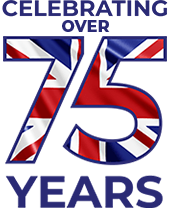Women have always been typically underrepresented in the UK engineering sector, and, in light of the current difficulties surrounding British engineering, there is an increasingly coordinated initiative to try and change this situation.
As family-owned spring manufacturers, we fully support the notion that women can play a vital role in the engineering industry, but we also recognise that there are difficulties. According to The Telegraph, one of the real problems for would-be female engineers is the lack of a defined role model; if you ask for an example of a famous female engineer, more than one out of every ten people name Isambard Kingdom Brunel – a male engineer – in response.
Actually, there are many women over the years that have left a lasting legacy in the engineering world, and many of their achievements are the equal of any more widely-known feat. Here is a selection of famous female engineers and a little information about their deeds:
Emily Warren Roebling lived from 1843-1903, and is widely remembered for her contribution to the Brooklyn Bridge (see right). After her husband fell ill, Roebling, a law graduate, taught herself the art of civil and construction engineering using his notes, and managed the entire project to fruition; even defending the construction process when there were calls to see her bed-ridden husband replaced as head engineer. Dubbed the ‘First Woman Field Engineer’, Roebling may not have been in full charge of the Brooklyn Bridge construction, but her input and was at least the equal of her husband’s.
Kate Gleason (1865-1933) never completed a formal degree in her chosen subject of engineering, but she became a revolutionary figure in her time, having being voted into the American Society of Mechanical Engineers; the very first woman to receive such an honour. Her exploits included the development of new and ‘affordable’ housing for workers, as well as taking a profound role in both manufacturing business deals and engineering design. A college at the Rochester Institute of Technology still stands in her name today.
Not much is known about the day-to-day life of Mary Walton, but what is known is that she registered two patents in the 1800s for devices that reduced both sewer emissions and noise pollution. Apparently, her engineering aptitude owed nothing to anyone else, but was instead honed in her home environment by trial and error, along with using model train sets to simulate her work on noise pollution. With that in mind, it is truly remarkable how she came to excel in the field of environmental engineering before many others had even thought of it.
Dam building wouldn’t necessarily rank as a ‘traditional’ area where you’d find women participating, but Edith Clarke (1883-1959) was at the forefront of dam building in the USA when it came to electrical engineering. The first female professor in the discipline ever to teach at the University of Texas, this orphaned girl also went on to win various awards for engineering papers and became a fully salaried engineer; an extremely unusual achievement for her time. Clarke once stated that whilst there might not be a demand for female engineers, there was always a demand for people who could carry out good work, and the same principle undoubtedly stands today as well.
The USA has dominated our list so far, but don’t make the mistake of thinking that Britain has never played host to influential female engineers. Born Phoebe Sarah Marks, Hertha Ayrton was an English engineer who won the Hughes Medal for her pioneering work in the field of electrical arcs and the rippling effects within sand and water. Ayrton was regularly left frustrated by the restrictions imposed upon her by being female at the time, but was acknowledged as a B.S.C in 1881, and even today – 91 years after her death – she is still one of only two women to ever win the Hughes Medal.
As you can see, a quick glance back through history will reveal a whole multitude of female engineers, and our list could have included many more candidates besides these five. Women have consistently been present within engineering in the past, but, just like today, they were underrepresented. However, despite this their work was always of great value, and young women today would do well to remember this before they allow themselves to dismiss engineering as an unrealistic profession. Just as Edith Clarke stated all those years ago, if you have the capacity to carry out good work, there will always be a demand for your skills.
At Airedale Springs, there are many women working within our family run spring manufacturers business, and it would be wonderful to see women becoming more involved in the engineering industry on a nationwide basis too. We believe that this family run ethos has been the cornerstone of our success when it comes to producing high quality springs, and our dynamic company simply wouldn’t be the same without the input of both talented men and women.
If you have a need for springs within your business, then look no further than Airedale Springs to provide just the products that you need. We’ve a worldwide reputation for excellence and exceptional customer service, so feel free to contact us by calling 01535 643456 or emailing sales@www.airedalesprings.co.uk to find out more. We’ll always be pleased to hear from you.


